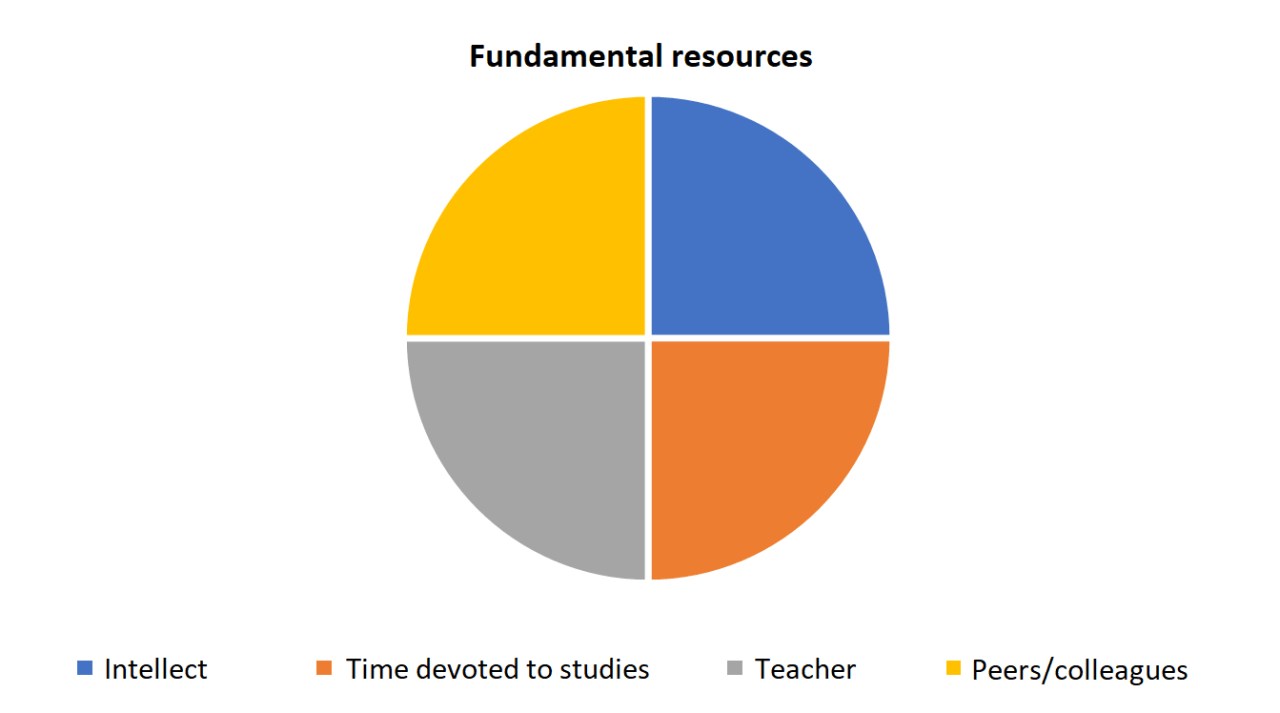Is There a Chance for Success if You Want to Become Something New but You Are Already All Grown Up?
The author of this article is EPAM Software Engineer Andrej Podlubnyj.

Introduction
In recent years, the tech field has gained significant popularity in many countries, offering a unique opportunity for a successful career and a comfortable living. As a result, some people are making the decision to completely switch their profession and start a career in tech.
I have over 15 years of experience in adult education and training in tech, and several of my students are successfully working at EPAM today. In the past year alone, I assisted a dozen students from RS-School in mastering the JavaScript course, and I conducted approximately 30 interviews with future frontend developers.
Fifteen years ago, entering the testing field required knowledge of English, development required knowledge of HTML, and proficiency in Photoshop opened doors to the world of UX design. Today, the landscape has changed. To become a developer, you need English proficiency, usually at a level not lower than B1, and technical skills that require at least a year of intensive preparation.
My teaching experience indicates that the answer to the question "Can I become a programmer?" is that success is achievable for students who are willing to dedicate 4-10 hours daily, forgetting about distractions like Netflix, holidays, and rest.
What resources do you need for a successful start in tech?
An important point I want to highlight is resources.
Most students worry about whether they have sufficient abilities to begin. While a developed intellect certainly accelerates success, I believe that there are four fundamental resources that impact your educational result.

My theory is that success (100%) depends on each of these four things:
25% on intellect;
25% on the teacher/trainer;
25% on peers/colleagues; and
25% on the time devoted to studies.
The real-life percentages may not align precisely with the allocation above. The key is that the sum of your resources should exceed 51%, and ideally you should strive for 75%.
Let's consider an example:
Let’s suppose that Seryozha rates his intellectual abilities as average — 12%.
The teacher doesn't impress him much — 12%.
Seryozha doesn't communicate with his peers and generally struggles with communication — 0%.
He does, however, dedicate a considerable amount of time to studies — 20%.
The total in our example is 44%. In this case, Seryozha is unlikely to achieve much without additional effort.
As for the teacher, it’s complicated. Usually, we can quickly identify a bad teacher, but finding a good one is a challenge. Perhaps it makes sense to study in two or three different places, or to find a mentor with whom you can periodically discuss the progress of your independent learning.
What constitutes a good teacher is not only about knowledge, but also about psychological support. Many people struggle and drop out of programming courses at the very beginning of their journey. In the industry, it's said that only 10-25% of graduates are successful. This may vary across different schools and with different mentors, but the overall trend remains.
People are generally not willing to invest a lot of time and effort. This is especially true for adults, particularly those with jobs or children. The effect is magnified when they have jobs, children, and a spouse who does not support their desire to learn. I have seen both successful and unsuccessful cases among mothers with many competing demands on their time. Here are just two examples:
Studying in the morning, picking up the kids from school after lunch, preparing dinner in the evening, doing Java homework at night, and after a year — a tester position at a product company.
A husband’s mockery, difficulties in learning, a complete lack of free time, and after a year — the same job as before beginning the studies.
Some people quit their studies because no one in the family supported them.
I would like to highlight that practically any education is available online today, so people who go through the same course together interact less with each other than they would have in the past. In some schools, education includes an element of competition, which can negatively affect communication.
What skills are important for programmers?
Here, I come to the most important point: programming is, above all, about communication. Developers interact with clients, designers, testers, and other colleagues. The role of a programmer silently sitting behind a computer somewhere in a corner, as many perceive it, is not something you should expect.
Yes, such programmers exist. But, more often than not, programmers are valuable and experienced team members who can independently manage one or two projects. If a novice coder remains silent during daily meetings, it is likely that their probationary period will end unsuccessfully. I highly recommend developing communication skills and not hesitating to bombard mentors, teachers, and colleagues with questions — during your studies and at work.
If you think that coding skills are second in importance, you are mistaken. Conflict resolution and the ability to always engage in a pleasant manner and with a friendly face are incredibly important qualities for every team member. Conflicts and challenges at work will always exist: someone misunderstood the task, someone did not work at all, and someone demands work even on weekends. Therefore, in tech, people who can communicate cooperatively are highly valued.
In my personal ranking, coding is in third place among useful skills. You might create a different ranking — and that's okay.
Instead of a conclusion
Once, I read a little motivational story:
Never Give Up
I am very inspired by the story of one product manager, and I want to share it.
In early 2020, due to COVID, he lost his job and found his management diploma unwanted in the job market. He spent several months interviewing, modifying his resume for vacancies, writing cover letters, and using other techniques recommended by career consultants. He was rejected everywhere.
He did not give up. He found product management courses and, in a few weeks, thanks to his perseverance, he became a certified product manager. He created a new resume, applied to dozens of product manager positions, and was rejected everywhere. "Thank you for your time, but we decided to make an offer to another candidate." These were the letters he received every day.
The PM was ready to give up but, by chance, he wrote to several CEOs on LinkedIn indicating that he was willing to work for food to enter the profession. One of them, the founder of a small e-commerce startup, somehow saw the PM’s talent and invited him to join the company. For one and a half months, the PM worked hard, but he could not contribute, and was fired. Months of effort went down the drain.
Even then, he did not give up. He called his dad, who worked as a vice president in a large bank, and he arranged for the PM to work as a department head! Literally, one call pulled him out of the bottom and gave him an excellent job in a large company.
If he could do it, so can you. Never give up.
The moral of this story is that no one will give you anything for free if you don’t have a highly placed family member. Becoming a programmer is a marathon. Prepare, learn, improve, and at the end of the journey, a reward awaits you — your dream job and new opportunities. If you're looking to switch to an IT career, this path requires dedication and continuous learning, but it can lead to fulfilling and lucrative opportunities in the tech industry.

.png)
